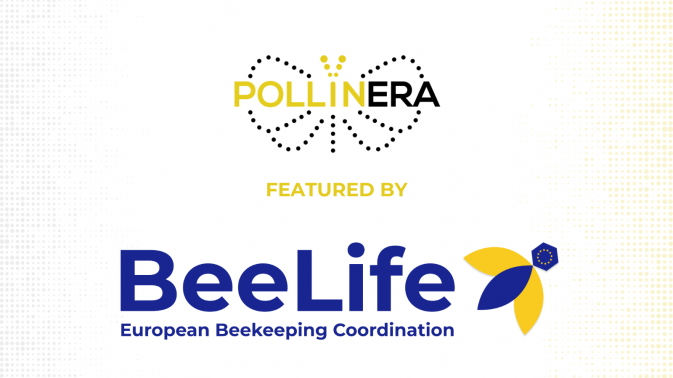New feature: BeeLife sheds light on PollinERA’s mission

Project partner BeeLife European Beekeeping Coordination has just announced its participation in PollinERA on its website.
The recent blog post features the challenges before PollinERA of bridging ecotoxicological data gaps, developing predictive models for pesticide impacts on pollinators and thus revolutionising pollinator ERA beyond honey bees. The feature also outlines PollinERA's multifaceted approach which includes developing co-monitoring schemes, refining toxicological models, and implementing population-level risk assessments.
You can read the full blog post here.
BeeLife European Beekeeping Coordination has been working for the improvement of the Environmental Risk Assessment of bees and other insect pollinators and the implementation and enforcement of pesticide and other related regulations since its foundation in 2013 and before, since 2009, as a scientific task force. This is the reason why, within PollinERA, BeeLife is in charge of monitoring relevant decision-makers' discussions and regulatory developments. BeeLife also identifies and interacts with relevant stakeholders to ensure scenario definitions are in line with existing decision-making and pesticide authorisation processes. Furthermore, these engagement activities contribute to the Communication, Dissemination and Exploitation activities of PollinERA. BeeLife has developed the EU Pollinator Hub in collaboration with ZIP Solutions, a data-driven platform aiming at centralising and standardising pollinator-related data. The data collected within the project and many other datasets that would be relevant for the pollinator community will be integrated into the Hub, and BeeLife is in charge of the Data management plan, incl. a data governance framework, a plan for metadata management and a definition of the data pipeline.
BeeLife European Beekeeping Coordination is a science-based solution-oriented non-profit organisation working to improve conditions for bees, pollinators and us all. BeeLife aims to: (1) achieve a Risk Assessment of pesticides on bees and insect pollinators that recognises all existing routes of exposure, and specially those leading to chronic toxicity and sub-lethal effects; (2) re-evaluate pesticides taking into account the amendments proposed in Risk Assessment and real data from field observations and phytopharmacovigilance; (3) integrate a Systems-based approach in Risk Assessment methodologies and (4) improve collaborations between pollinators, agriculture and society, ensuring a win-win situation for sustainability, biodiversity and food security.